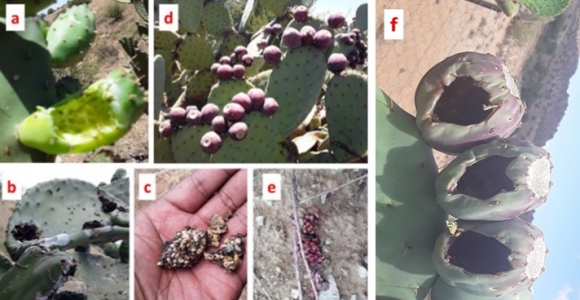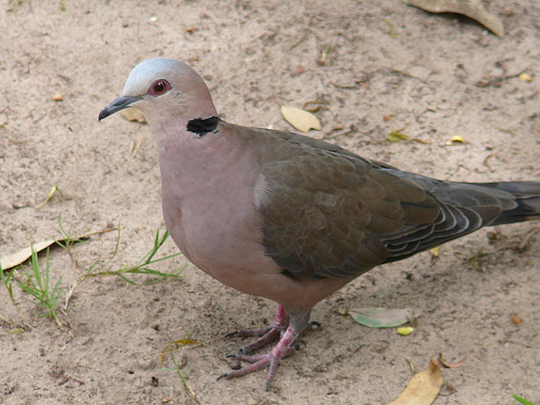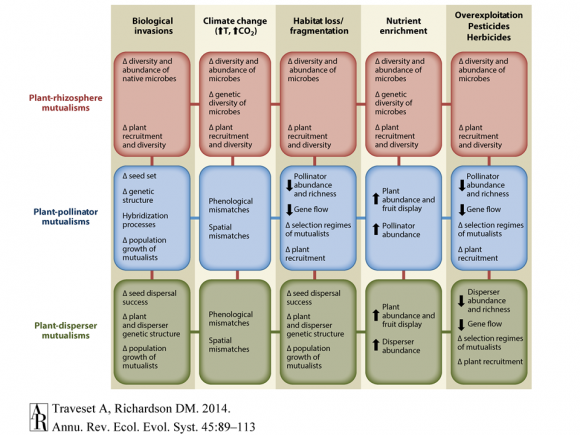The consumption of alien fruits by birds and dispersal of ingested seeds increase the invasion risk of two cacti species in arid areas of South Africa. This was the findings of a recent paper by a team of researchers including C∙I∙B Core Team Members, Dr Thabiso Mokotjomela and Prof Colleen Downs, and Dr Vuyisile Thabethe of the University of Kwazulu-Natal.
The movement of organisms is one of the key mechanisms that shapes biodiversity and is especially important in helping invasion biologists profiling the invasion risk of different alien species, the detection of and eradication planning for emerging species, and for the synchronisation of biological control agents and target species.
Pied crows have large home ranges for scavenging and their population has increased thereby suggesting the possibility of long-distance seed dispersal that may help the range expansion for Blue-leaf cactus (O. robusta) and Sweet prickly pear (O. ficus-indica) if ingested seeds are defecated in a viable state – yet this is an untested hypothesis in South Africa.
After sightings of Pied crows (Corvus alba), Red-eyed bulbuls (Pycnonotus nigricans) and Pied starlings (Lamprotornis bicolor) feeding on fruits of two invasive cacti species and defecating and regurgitating seeds in the arid parts of Free State province, the team of researchers decided to test whether the germination and speed of cacti seeds are improved after ingestion by these birds.
To test their hypothesis, the team conducted a series of germination essays of the seeds defecated by two sets of bird species in the field to compare how the seeds of the cacti species respond to gut treatment.
They found that Blue-leaf cactus germinated much better than Sweet prickly pear after passage through bird gut most probably due to different seed cover hardness between the two species. The Blue-leaf cactus seeds defecated by the smaller birds had significantly greatest and most accelerated germination followed by the seeds defecated by the Pied Crows. Also, seeds of Sweet prickly pear defecated by the Pied Crows had significantly greater germination than the seeds ingested by smaller birds.
“Blue-leaf cactus is categorised as an emerging management priority alien species in the National Regulations for Alien and Invasive Species while Sweet prickly pear is a target for invasion containment in South Africa. That O. robusta is categorised as emerging alien species could have been due limited experimental evidence on the movement and spread of the species because it is widespread and seem to enjoy natural dispersal services that inevitably increased its range, says Thabiso Mokotjomela, lead author of the paper published in Acta Oecologica. “We (SANBI – Biological Invasion Directorate), are currently reviewing the invasion risk profile of this species so that it can be recategorized in the National Regulations for Alien and Invasive Species. Risk analysis is now most important tool for focusing the management on priority species amidst the increasing biosecurity threats and limited resources in the world.”
Read the paper
Mokotjomela, T.M., Thabethe, V. and Downs, C. 2021. Comparing germination metrics of Opuntia ficus-indica and Opuntia robusta between two sets of bird species (Pied Crows and two smaller species). Acta Oecologica. Volume 110: https://doi.org/10.1016/j.actao.2020.103676
For more information, contact Dr Thabiso at T.Mokotjomela@sanbi.org.za




